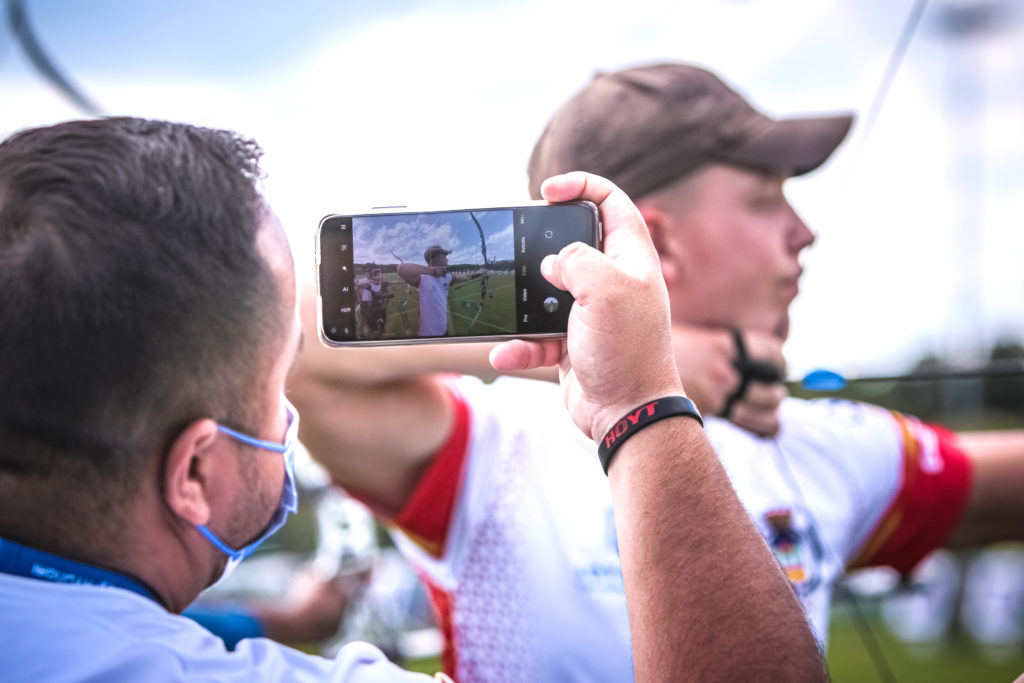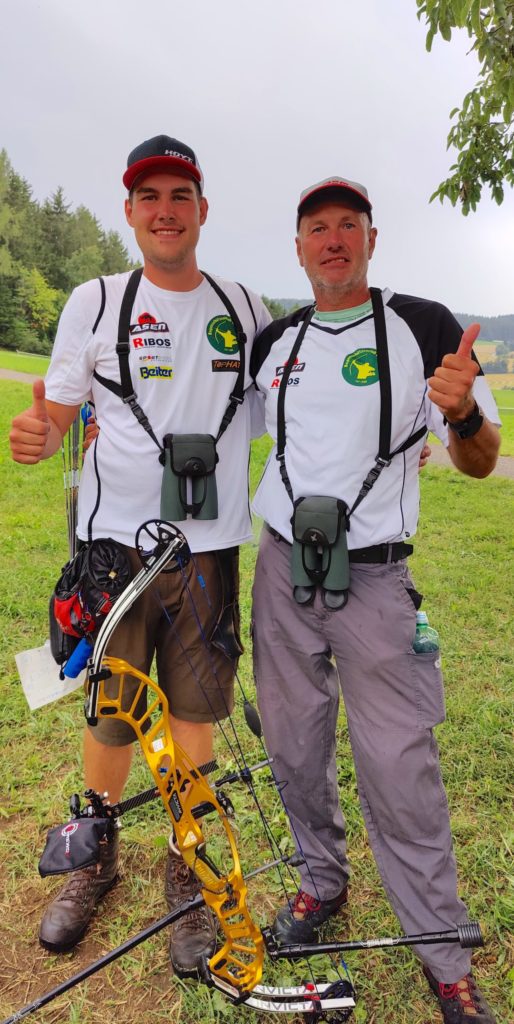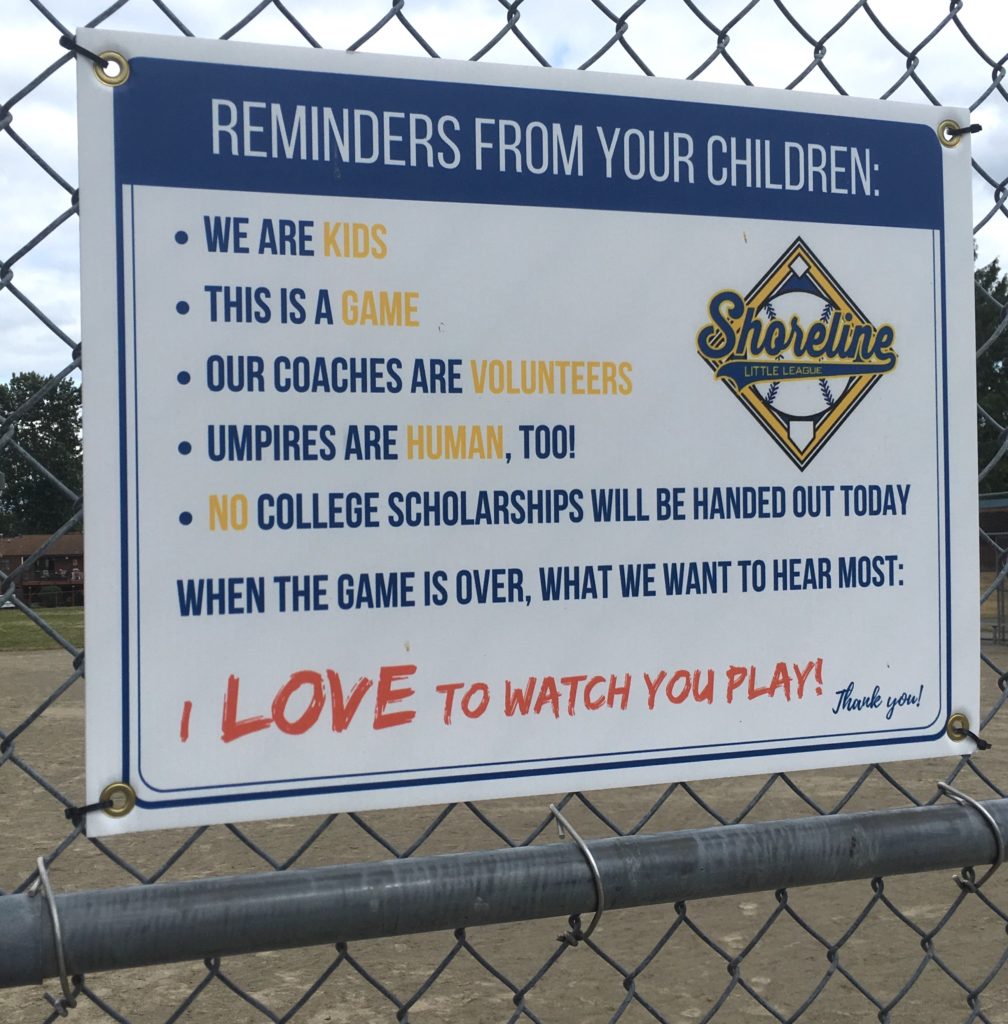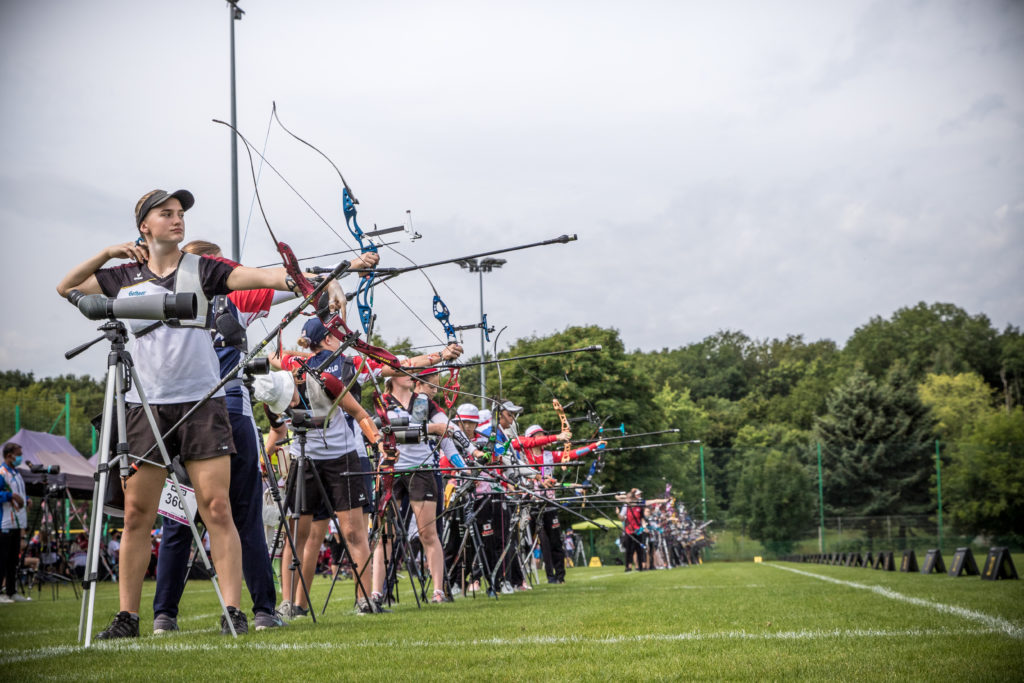Naomi Folkard makes an impassioned plea to those behind the line
As a parent, you clearly have the potential to have a significant impact on your child’s development and their life as an athlete, whether they have big ambitions or not. You probably have a strong urge to control your athlete to make sure they are doing everything right, in your mind, to give them every bit of help and every chance to succeed.
I’m sure you get frustrated when your athlete repeats obvious mistakes, giving you cause to take control or nag. When sport requires you to invest much of your time and money, it becomes all too easy for you as a parent to get too involved and forget what sport is all about. When this happens, your behaviour and language can increase your child’s stress and can lead to them resenting you, being fearful of failure and falling out of love with sport. Don’t be this parent.
Of course, there are stories of extraordinary athletes who have been raised by a strict parent, or parents, holding their child to a stringent regime and raising them with the sole purpose of them becoming an exceptional athlete, most notably Tiger Woods in golf and the Williams sisters in tennis.
There are always going to be exceptions. Their success does not mean the way they are supposed to have been raised was ‘right’ and we do not know how they would have developed if they had been raised in a more nurturing environment. It’s very easy to think “my child is the exception” and be ignorant of any other parenting method.
I am sure that there are many more examples of stunning athletes who have been raised the nurturing way, but they don’t make as interesting a story, so we don’t get to know as much about them (perhaps David Beckham is a good example).
What does your child actually need?
No matter what your personal parental philosophy is, whether it’s tough love or nurturing, competitive or self-fulfilling, there are basic things that your child will need, regardless of their sporting ambitions and performance.
It is obvious that you should give your child unconditional love, but it is too easy for parents to get so wrapped up in their athlete’s journey that they forget they are a parent first and the athlete is their child first.
This has to be a robust relationship to ensure the athlete’s automatic belief is robust and they know to their core that it is safe for them to compete without any repercussions from you about their performance.
This leads nicely on to emotional support. A robust relationship will enable you to support your child when they need you, whether they are feeling overwhelmed by the demands of school or training, or they feel as if they are stuck in a rut with their shooting. You are there to listen. It isn’t your job to solve their problems.
Everyone needs good nutrition and, as a parent, it is your responsibility to ensure your child is fed and watered properly. Of course, you can’t force-feed your child, but ensure that healthy options are available and try to lead by example. Before your child leaves home (perhaps for university), challenge them to cook a few meals for the family.
Your help and support of their athletic journey is no more apparent than in your provision of transportation, as it takes so much of your time – at least until they have passed their driving test and have a car of their own. They need to travel to the gym, archery club and competitions. Take a book or something to amuse yourself while they are training.
Listen to podcasts or go for a walk if safeguarding permits – your athlete doesn’t need you to watch down a telescope all the time. Try to use travel time to enjoy each other’s company. If you have teenagers, you might think I’m mad, but if this does seem like an impossibility, try listening to some comedy, something that you can both enjoy.
Or less enjoyable, but more useful, your child could use the time to tell you all about a subject that they need to revise for an exam. You don’t have to understand everything, because what they are saying and the act of speaking out loud can be useful for the learning process.
Money matters
Your money will be paying for fuel, equipment, coaching, entry fees and so on. Teach your athlete the value of money by all means – it is an important part of growing up, after all. These days, there seems to be some kind of expectation for every young athlete to be sponsored by equipment companies and to be receiving monetary grants, although any arrangements should be made through the parent if the athlete is under 18.
I fully understand the financial implications of being a youth archer and any help can be a relief, but you must understand the extra pressure and expectations that your athlete may feel by having sponsorship deals and limit this pressure if you can. Ask yourself if the sponsorship is really worth it and consider what impact losing that sponsorship would have on your athlete, whether that loss is due to underperformance or something else. Another point about money is the cost of arrows.
Even though they are expensive, they must be understood to be a consumable product, so that if they get broken (unless through careless behaviour), you must not punish your child, whether that’s verbally or through your facial expressions or body language. A poor response from you here can create a fear of failure.
Positive influence
Beyond these responsibilities, there’s a lot that you can do to support your young athlete on their journey. Understanding what it takes to be an elite athlete can help you work out how to be the best you can be.
Read any sports book or search the internet for the key attributes of an elite athlete and you’ll find the following qualities: self-confidence, risk-taking, passion, motivation, dedication, self-discipline, optimism, acceptance, poise under stress, focus, resilience, competitive spirit and fair play, natural leadership, humility, passion, growth mindset and independence.
I’ll pick out a few of these and explain how you can positively influence your athlete to improve in these areas. Unfortunately, it’s much easier to have a negative impact than a positive one, but I’ll do my best to keep points proactive.
There’s little more effective at extinguishing someone’s passion for something than nagging them about it, so instead let your athlete take control of, and responsibility for, their own journey. An athlete doesn’t always have to be motivated as long as they are dedicated and it’s much easier to follow a routine or plan than to decide whether or not to go training. So don’t ask your athlete: “Are you going to the club today?” You just go.
Acceptance, especially of competition results, is a vital part of the psychological process. Whether or not goals have been achieved, the athlete has to go through a healing stage to understand in a healthy way their successes and failures, and how to learn and do better next time. Some athletes find this stage very difficult and it is near impossible if their parent is not accepting of the results.
Acceptance overlaps with growth mindset – the belief that intelligence (or ability in the case of sport) can be developed, as opposed to a set mindset, which is the belief that intelligence is static. In the case of sport, the growth mindset is that ability can be developed through practice (see the 10,000 hours theory), versus the static mindset that believes someone is either talented or they are not.
I would recommend that you research the work of Carol Dweck. You will be sold on the importance of a growth mindset and you will also realise how simple changes in language can make a big difference to belief and behaviour. Praise attitude, enjoyment and effort, rather than talent. For example, saying “well done, you’re good at archery” shows a fixed mindset, against “well done, you must have been training with purpose”.
Resilience also overlaps with growth mindset: persistence in the face of setbacks; learning from criticism; embracing challenges; and finding lessons and inspiration in the success of others. If you spot your athlete straying from these, then help them back on to the right path and take care with your language.
For example, an athlete might want to quit halfway through a competition. Encourage (don’t force) them to continue and help them to find a positive, even if it is to test and improve their resilience! Be happy for their competitors’ successes. If you find this too difficult, at least avoid being sore and hostile. Remember – again – it’s not your job to solve their problems. Let them figure things out for themselves and they will learn.
Building self-confidence
A lot of what you can do to help your athlete is to lead by example and ensure your behaviour and language is reasonable. For example, with optimism and positivity, be positive yourself and optimistic (keep it real though!) about anything in life – it doesn’t have to be sports specific. There’s a difference between being optimistic and having high expectations that heap pressure on to your athlete, so watch your step to get the balance right. Having an open dialogue and trust with your athlete (easier said than done with a teenager) will enable you to understand what they are comfortable with.
When it comes to your athlete’s self-confidence, you must ensure that you are not hindering their development. Parents love to embarrass their children. Please do not do this – especially on the shooting line. Last year, I heard a parent come racing down to 50m to say to their child “what did you do that for, you muppet?” very loudly in front of her idols and peers, in response to an end of five golds and a black.
The parent thought it was OK to do it because he said it as a joke. Incorrect. The damage that kind of behaviour does, especially if it’s a regular thing, can last a whole career. Telling off your athlete for bad performance is equally horrific. Ensure your body language and facial expressions remain positive at all times.
Coming off the line to see a coach or parent with a scowl is the worst. It poisons the belief a little bit at a time, damaging self-confidence, making risk-taking impossible, increasing fear of failure, destroying the way your athlete deals with poor performance and, over the long-term, the fear of failure will be so ingrained in your athlete that they will never be able to compete without fear.
I’ve already said this and I will say it again, you don’t need to watch your athlete perform, you could simply sit in the back of the tent or car and read a good book. Let your athlete be independent and resilient.
It’s important to show respect to everyone, especially coaches, judges and organisers. Help to create a positive culture and stamp out the toxic culture of inundating volunteer organisers with emails and private messages, complaining on social media and gossiping with other parents. Trust everyone to do their job to the best of their ability and, if a problem arises, be the bigger person and deal with it in a professional manner. Be a positive role model to your child.
While on the topic of respecting your coach, I will use the opportunity to mention gender bias. Gender bias, unconscious or not, is still a huge problem in sport. Teach your child through your behaviour and language that female leaders and coaches are as valuable and knowledgeable as males.
If your athlete is a girl, they need to be as confident and independent with their equipment as the boys. Give them that opportunity. It doesn’t matter whether your child is male or female, it’s important in their lives at school or university, in employment and for their future as a parent and role model.
In conclusion
By now, you should be realising that the development of your child as a whole is the point of taking part in sport. Understand this – very few youngsters make it to become Olympic champion. Sadly, a lot of archers quit when they go to university, perhaps because they have discovered freedom. If they were given freedom within their sport, then they might have been more likely to continue. Make sure the journey is a holistic one. If your athlete does leave the sport, let them leave with a legacy. If they have skills and habits for their future, all the hard work, successes and disappointments will be worth it.
Finally, learn from your mistakes and admit them to your child. Apologise. Be humble. It’s a very difficult thing to do, so show your child that it’s OK. They will respect you, learn from your behaviour and find it far easier to do the same. Your role is to love your child unconditionally, be a positive role model and enable your athlete to relish taking part in sport. Remind yourself of this every day. If you need to write your own directive affirmation, then get on and do it. Take pride in your behaviour. How do you want to be remembered in years to come?






